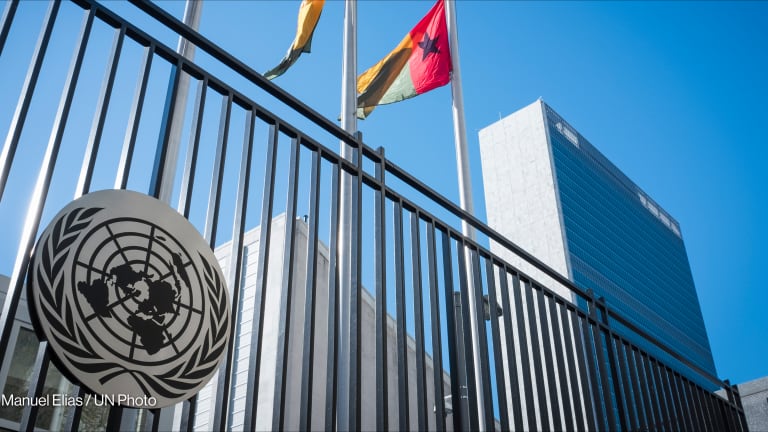A shakeup in the United Nations secretary general race and the beginning of a new era for Colombia. This week in development news:
The U.N. secretary general race has a new candidate: Kristalina Georgieva, the Bulgarian European commissioner for budget and human resources. Georgieva’s entry into the race comes on the heels of Monday’s straw poll, which saw António Guterres — the former high commissioner for the United Nations refugee agency — come out on top, while Irina Bokova — a fellow Bulgarian and the director general of UNESCO — finished a disappointing sixth. Bulgaria’s Prime Minister Boiko Borisov announced the country’s nomination of Georgieva at a cabinet meeting, saying, “We consider that this will be a more successful nomination,” according to Reuters. With Guterres as the current front-runner and Georgieva now a strong — albeit late — challenger, the odds are good that the next U.N. chief will come from a strong development background. Georgieva also appears to represent the best chance for a woman to assume the U.N.’s top job for the first time in history. Russia, a permanent member of the security council with veto power over candidates, is known to support the appointment of an Eastern European as secretary general, but may not back Georgieva given her role at the EU, which has enforced sanctions against Russia. The next, and final, straw poll will happen on Oct. 5.
After seven months of feuding the U.S. senate has agreed to a short-term spending plan that includes $1.1 billion in funds to combat the spread of the Zika virus. The bill includes $394 million for the Centers for Disease Control and prevention to prevent, prepare for, and respond to Zika virus and other vector-borne diseases in the U.S. and internationally. It also includes $387 million for the Public Health and Social Services Emergency Fund, $152 million for the National Institutes of Health and $10 million for U.S. Agency for International Development operating expenses. According to NPR, $397 million of those funds will be used to develop a vaccine for the virus. Previously, the Zika support had been caught in a battle over whether some of the funding could go to Planned Parenthood, the women’s health and family planning organization.








